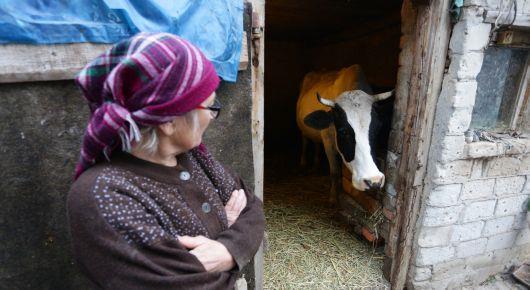Gender equality in livestock keeping ensures an inclusive and sustainable future

Achieving equality between women and men is a precondition for sustainable agricultural production and rural development, achieving food security, and elimination of poverty. As livestock is the second-largest contributor to the global agricultural economy with an increasing importance, the sector has a big stake in this pursuit.
On 6–7 November in Budapest, FAO is organizing a workshop to increase awareness on gender issues in the livestock sector and enhance participants’ knowledge to develop targeted programmes and policies in Europe and Central Asia.
The workshop will help participants better understand the different realities of women and men in livestock-keeping sectors and improve their knowledge on planning, implementing, and monitoring development programmes/projects, strategies, and policies so that women and men working in livestock farms can equally benefit from these. As a result of this training, participants will be confident to independently apply the FAO gender mainstreaming approach when working with livestock systems.
Participants include FAO professional staff working in the field of livestock and representatives from governmental and non-governmental organizations from regional countries. A work plan will be formulated at the end of the workshop to identify feasible regional and national level activities aimed at closing the gender gap in the livestock sector.
“All FAO initiatives and interventions across key agricultural sectors, including livestock, should ensure that women and men benefit equally, and that inequality is not perpetuated,” said Dono Abdurazakova, FAO social protection specialist. “To make that happen, we should equip FAO technical staff and our key partners with instruments and approaches that allow them to identify and address different needs, constrains, contributions, and priorities of women and men working in the sector.”
Livestock production is an essential part of rural livelihoods for many poor farmers with women facing several constrains in accessing productive resources and decision-making processes. As these challenges have significant consequences on the productivity and food security of livestock-keeping households, the ability to identify and address gender issues contributes to the effectiveness of development interventions and their sustainability. This, in turn, leads to a greater reduction of poverty and empowerment of rural livelihoods.
Women are particularly involved in small livestock production (poultry, sheep, and goats), milking, and milk processing. Globally, some 400 million women make up two-thirds of low-income livestock keepers. In Europe and Central Asia, both sexes play an active role in animal production and women are key actors in conserving livestock diversity. However, their roles in livestock keeping are often overlooked, which eventually affects the sector’ productivity.
As a recent example of gender-responsive action, a regional FAO project was implemented in 2016–2019 on the conservation and development of cattle breeds suitable for milking and meat production. This project has contributed to the empowerment of cattle-keeper women in Armenia, Georgia, and Ukraine by collecting and analysing sex-disaggregated data as part of a solid assessment of livestock production systems.
Not only has this has revealed the important contribution of women to cattle farming, especially in specific segments of the diary value chain, but also severe gender inequalities in terms of ownership of land and cattle, access to machinery and equipment, as well as to extension services, vocational training, and professional education. These results gave further justification for strong actions towards closing the gender gap in the livestock sector and related livelihoods in Europe and Central Asia.
The socio-economic studies conducted in those three countries will be presented at the workshop, along with relevant information collected on gender and livestock in other counties. This should ultimately train participants on how to ensure their daily work with livestock systems take into account existing gender-based barriers and overcome them for greater productivity of the sector, while also implementing the principle of “leave no one behind” contained in 2030 Agenda for Sustainable Development.
6 November 2019, Budapest, Hungary
